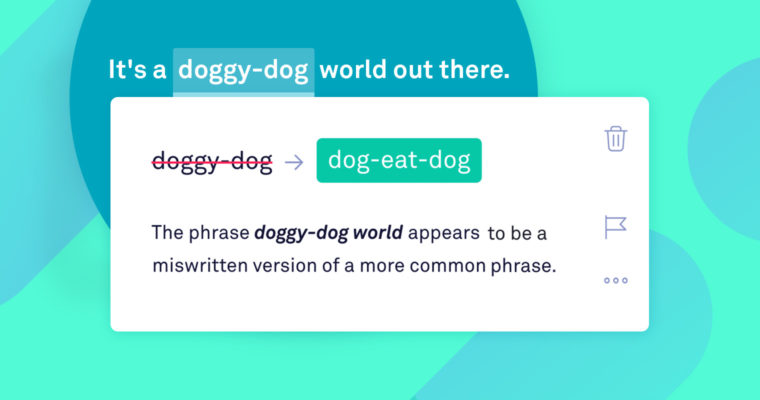
Have you ever seen someone write “take for granite” when they meant “take for granted”? What about a “hair’s breath” instead of a “hair’s breadth”? Or how about “for all intensive purposes” instead of “intents and purposes”?
There’s a name for mix-ups like these: eggcorns. The name comes from a post on the linguistics blog Language Log, describing a speaker who used the term “egg corn” to refer to an acorn. Simply put, an eggcorn is a misheard word or phrase that someone substitutes for a more common expression. When spoken aloud, an eggcorn usually sounds very similar (or even identical) to the original version. Try saying “a scapegoat” and “escape goat” out loud and you’ll see what we mean.
The interesting thing about eggcorns is that they often sort of make sense. If you take something for granted, it means you fail to appreciate it because you expect it to always be around. Granite is known for being durable and long lasting. It’s not hard to see how someone could make the leap from “take for granted” to “take for granite.”
Avoiding eggcorns in your writing
When you’re writing something important, though, eggcorns (and the unintentional humor that sometimes accompanies them) are something you’ll want to avoid. Grammarly catches a range of spelling mistakes and commonly confused words, including eggcorns.
More from Grammarly Spotlight
How To Preserve Formatting in the Grammarly Editor
How To Add New Words to Your Personal Dictionary
How To Learn New Words While Writing
How Do Grammarly’s Products Work?
Why Concise Writing Gets More Readers
Why Hedging Language Undermines Your Writing
How to Select Your English Dialect






